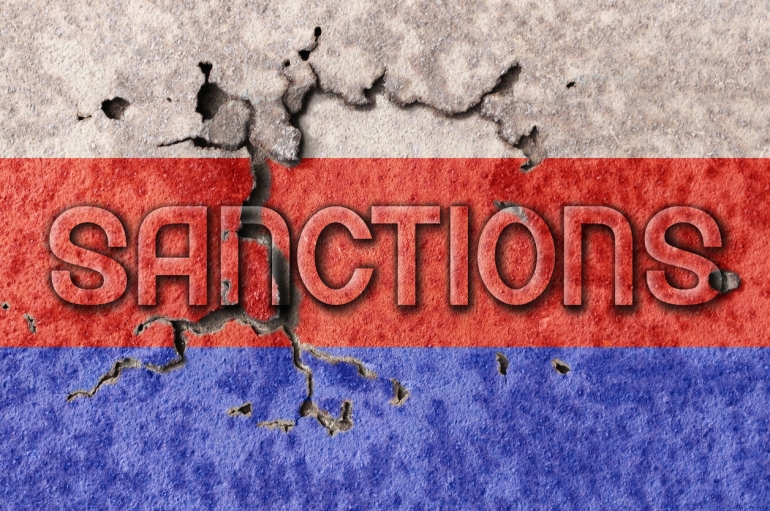
Abstract
The unprecedented economic sanctions against Russia will affect businesses directly and indirectly. They are likely to bring both intended and unintended effects. This roundtable will explore the following questions: how will economic sanctions affect areas such as trade, investment, and finance? What are the implications of economic sanctions for businesses ranging from daily transactions to global value chain?
Moderator
Deborah Healey is a Professor at UNSW Law and a Director of the China International Business and Economic Law Centre. She is also a member of the Centre for Law, Markets and Regulation. Her research and teaching focus on competition law and policy in Australia, China, Hong Kong and the ASEAN nations and she has written widely in them over a long period of time.
She is a regular visitor to those jurisdictions to research and teach. Within the area of competition law, she is particularly interested in the role of government in the market, both in Australia and internationally; merger regulation; competition in banking and finance; and the digital economy. Deborah has undertaken substantial research in the development of the Anti-Monopoly Law of China against the background of its political economy and has written widely alone and with Chinese co-authors and in material translated into Chinese. She has consulted with, and completed research projects for, UNCTAD, OECD and ASEAN, She is a Non-Government Adviser to the International Competition Network and a member of the Law Council of Australia Competition Law Committee.
Panelists
Jacqui Wootton is a Partner at Herbert Smith Freehills and Co-head of the firm’s Australian corporate crime & investigations practice, advising in disputes, investigations and corporate crime. Jacqui holds particular expertise in anti-corruption, sanctions and compliance and frequently engages with clients on multi-jurisdictional matters of high reputational significance, including issues arising in countries across Asia, UK, US, Middle East and Africa.
Jacqui is recognised in Chamber’s Asia-Pacific, Who’s Who Investigations, Best Lawyers and Doyle’s Guide and she receives regular praise for her ‘fantastic global knowledge’. She works with clients by both advising on contentious matters and implementing compliance frameworks that are often focussed on anti-bribery and sanctions policy. Jacqui brings to clients globally informed experience in the areas of anti-corruption, trade sanctions, ESG, business & human rights/modern slavery and whistleblowing.
Jonathan Bonnitcha is a Senior Lecturer in UNSW’s Faculty of Law and Justice. He is best-known for his research on investment treaties. His research also considers the inter-relationships between different systems of foreign investment governance, including investor-state contracts, national investment laws, national investment dispute management agencies and international principles, such as the UN Guiding Principles on Business and Human Rights.
From 2022 to 2025, Jonathan is a Chief Investigator on the ARC-funded project China’s Belt and Road Initiative: A New Model of Economic Governance?, along with CIBEL colleagues Heng Wang, Kun Fan and Ross Buckley. Within this project, Jonathan is leading the research stream on investor-state contracting between Chinese firms engaged in outward foreign investment and government entities of the host states in which they invest.
Weihuan Zhou is Associate Professor, Director of Research, and member of the China International Business and Economic Law (CIBEL) Centre, Faculty of Law and Justice, UNSW Sydney. He published widely in the field of international economic law (IEL), particularly on the nexus between international trade law and China. He is currently co-Secretary of the Society of International Economic Law (SIEL) and editorial board member of the Journal of International Trade Law and Policy. Dr Zhou is a qualified lawyer in Australia and consults for governments and major companies on trade remedy cases and other cross-border trade and investment matters.
Heng Wang is a professor and co-director of UNSW Law & Justice's China International Business and Economic Law (CIBEL) Centre, the largest centre in this field outside China. He is also a co-director of the Tsinghua-UNSW Joint Research Centre for International Commercial and Economic Law (JCICEL). Heng has been recognized domestically and internationally for his outstanding contributions in the fields of international economic development and Chinese law, including being named Australia's research field leader in international law by The Australian newspaper’s Research 2020 magazine. Besides books, he has published extensively in leading journals in English and Chinese.
Note: Once registered, you will receive email reminders with the link to join the live event closer to the event date. If you cannot join the live event, register for an on-demand ticket so you can receive the recording after the event.